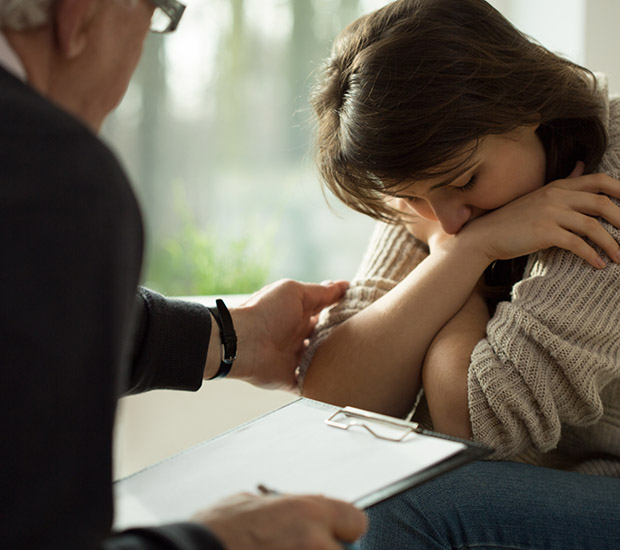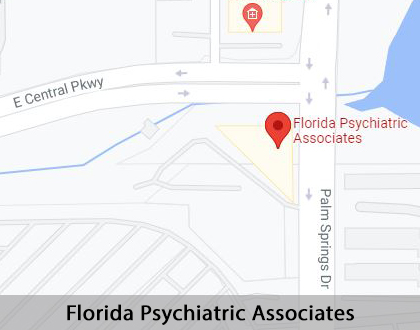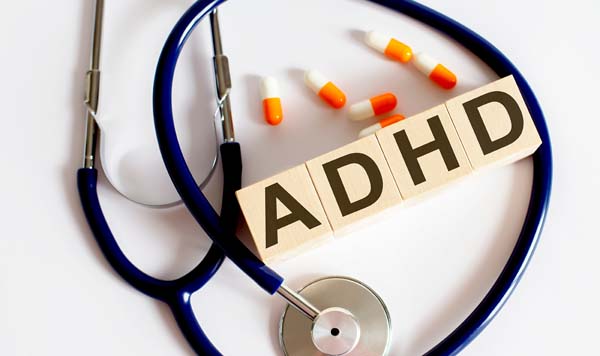Dysthymia Treatment (Persistent Depressive Disorder) Altamonte Springs, FL
For people with chronic depression, dysthymia treatment can improve their mood and help them enjoy life to the fullest. Dysthymia, or "persistent depressive disorder," causes people to feel chronic sadness or emptiness. They may also experience fatigue, loss of appetite, or lack of interest in their favorite hobbies. Although it is a serious disorder, dysthymia is treatable.
Our team at Altamonte Springs provides dysthymia treatment in Altamonte Springs and the surrounding area. We will help you explore possible treatment options to determine the optimal plan for your needs. Call us at (407) 960-5633 to learn more about our services or schedule an appointment.
Understanding Dysthymia
Clinical depression is more than temporary sadness or boredom. It is a chronic mood disorder that can affect every part of a patient's life. Like major depressive disorder, dysthymia can take a toll on patients' mental and physical health.
While dysthymia symptoms are usually milder than major depression, they can still be difficult to cope with on a regular basis. People with dysthymia may have mild, moderate, or severely depressed moods. Dysthymia symptoms are long-lasting, persisting for two years or more. Sometimes, people can also lapse into periods of major depression.
“Dysthymia symptoms are long-lasting, often persisting for two years or more.”
Symptoms of Dysthymia
Due to the chronic nature of dysthymia, patients may struggle with their symptoms for many years. According to the Mayo Clinic, most patients with dysthymia report:
- Anxiety
- Brain fog
- Changes in sleep patterns
- Fatigue
- Feeling “empty”
- Sadness
- Trouble concentrating
- Weight changes
Dysthymia often lacks the more severe symptoms that characterize major depression, such as lethargy, thoughts of death or suicide, and the inability to feel pleasure. Dysthymia can be challenging to diagnose since symptoms may overlap with many other medical conditions. It may occur at the same time as other mood or psychiatric disorders. Seeking help from a mental health professional can get patients the appropriate care they need.
“Dysthymia often lacks the more severe symptoms that characterize major depression, such as lethargy, thoughts of death or suicide, and the inability to feel pleasure.”
Benefits of Dysthymia Treatment
Many patients try to manage dysthymia symptoms of their own. However, it is crucial to understand that depression is a medical condition, not a sign of weakness. Treatment is a key part of recovery, and there is no shame in seeking professional help.
A mental health professional can determine which treatments best meet a patient's needs, depending on their health history, symptoms, and preferences. For example, while some patients may benefit from medication, others might do better with treatment. Recovery from dysthymia can take time. Whether a patient responds well to medication, treatment, or a combination of both, our team personalizes treatment to help them cope with and overcome their symptoms.
“Treatment is a key part of recovery, and there is no shame in seeking professional help.”
Check out what others are saying about our mental wellness on Yelp: Dysthymia Treatment (Persistent Depressive Disorder) in Altamonte Springs, FL
The Treatment Process
Treatment plans can vary depending on multiple factors. There is no single best approach to treatment, and patients may need to try multiple methods to determine the right treatment plan. Patients that opt for medication may take selective serotonin reuptake inhibitors (SSRIs) or dual-action antidepressants. Every person responds differently to each medication. Therefore, it may take a process of trial and error to find the optimal dosage and medication type.
Other people may work with a therapist to discuss their treatment goals, plans, and progress. People with dysthymia can benefit from various types of treatment, including supportive, cognitive-behavioral, psychodynamic, and interpersonal treatment. Receiving treatment can help people manage their symptoms and learn ways to unlearn their feelings of helplessness. They can also develop healthy coping mechanisms and learn new communication strategies. During treatment, many patients also make lifestyle changes that support long-term recovery. Therapists and psychiatrists may work together to develop a comprehensive treatment plan that produces optimal results.
“There are many types of treatment that people with dysthymia can benefit from, including supportive, cognitive-behavioral, psychodynamic, and interpersonal treatment.”
Questions Answered on This Page
Q. What are the symptoms of dysthymia?
Q. What are the benefits of dysthymia treatment?
Q. What dysthymia treatment options are available?
Q. How can patients continue their recovery at home?
People Also Ask
Continuing Care After Treatment
Patients receiving treatment will learn new coping techniques that require daily practice to remain effective. For example, their therapist may suggest incorporating journaling or using a CBT workbook in their daily routine. These practices help people adjust their thought patterns to avoid a relapse. Treatment length can vary. Patients often remain in treatment for three to 12 months, but some treatment programs continue much longer. Depending on their needs, people may see their therapist weekly, monthly, or as needed.
The therapist will work with each patient to determine the right frequency for treatment sessions. Patients taking medication will need regular checkups. While some patients can stop taking their medication after some time, others may remain on their medication for life. It is important for people not to change their medication regimen without speaking to their provider. Discontinuing medication without warning could trigger a relapse. People that choose to discontinue their medication can slowly taper off their dosage with the help of a professional.
“Patients often remain in treatment for three to 12 months, but some treatment programs continue much longer.”
Frequently Asked Questions
Q. Is dysthymia curable?
A. Many patients recover from their dysthymia and lead fulfilling lives. With appropriate treatment, patients can find relief from their symptoms. People struggling with persistent feelings of sadness do not have to do so in silence. Dysthymia is treatable with professional help.
Q. What causes dysthymia?
A. Researchers are not exactly sure what causes dysthymia. It appears to have a genetic basis. People with family members who have mental illness may have a higher risk of dysthymia. People who have experienced grief, trauma, or chronic stress are also at risk.
Q. Sometimes, I feel sad. Do I have dysthymia?
A. Dysthymia is more than a temporary feeling of sadness. To be diagnosed with dysthymia, adults must experience symptoms that last for two years and one year for children and adolescents. Other mental health conditions can cause short-lived depression symptoms.
Q. Do I need medication to treat my dysthymia?
A. Many people with dysthymia benefit from medication. However, medication is not the only dysthymia treatment option. Therapy can help, too. Some patients seek out other non-pharmaceutical treatments like massage, mindfulness, or TMS. Our team helps patients review their options and find the right fit.
Q. What natural methods can support my recovery?
A. Exercise can lift your mood and ease depression symptoms. Many patients find it helpful to go for daily walks or incorporate yoga into their schedules. Journaling can also help people recognize harmful thought patterns and explore sources of stress in your life. Some patients may turn to prayer or meditation, while others seek creative outlets like painting. Eating a well-balanced diet and improving sleep can help, too. Our team can help patients explore these options.
Change Is Possible – Call Us Today
Life isn’t always easy. Are you struggling? Are you looking for a highly personalized and professional approach tailored to your individual needs? Instead of waiting around, call us today. You should know that there is hope for a better tomorrow.
Definitions
- American Psychiatric Association (APA). Mental Health Topics. 2021
- Florida Psychiatric Associates was established in 2003.
- We accept the following payment methods: American Express, Cash, Discover, MasterCard, and Visa
- We serve patients from the following counties: Seminole County, Volusia County and Orange County
- We serve patients from the following cities: Altamonte Springs, Lake Mary, Sanford, Deltona, Orange City, DeBary, Apopka, Maitland, Winter Park and Orlando
- FL (License #ME68974). View License Information and Specifics
- National Provider Identifier Database (1518910835). View NPI Registry Information
- Norton Safe Web. View Details
- Trend Micro Site Safety Center. View Details
Learn More About Dysthymia Treatment
If you struggle with persistent depression symptoms, help is available. Our team at Florida Psychiatric Associates provides dysthymia treatment to stabilize your mood and improve your ability to cope with sadness or stress. Call us today at 407-960-5633 to learn more about our services or schedule an appointment.







